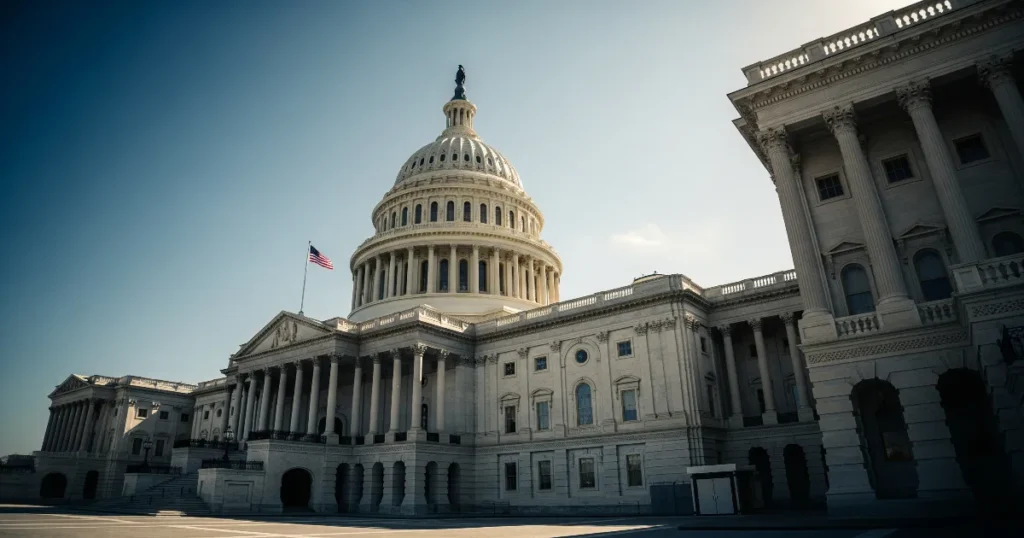Zack Cohen, Bitcoin Policy Institute
Before I jump into the summary, I would like to say thank you. On behalf of the entire Bitcoin Policy Institute team, we would like to thank everyone who has participated in, supported, spoke, tuned or participated in any way. I spent several months preparing for my third Bitcoin Policy Summit. What unfolded in Washington last week exceeded anything we had hoped for.
Over 1,000 people joined us, including builders, policymakers, students, agency staff, journalists, energy experts, and human rights advocates. And what they found was not the party they dressed up at the meeting, but a serious two-day working session that reflected how far the Bitcoin conversation came and where it was heading.
Bitcoin has been misunderstood or on the sidelines for a long time in DC. It was easy for policymakers to dismiss or ignore it. However, the 2025 Summit sent another signal. Bitcoin will not go away. It’s not on the fringe. It lies at the heart of a new conversation about national strategy, economic strength, digital rights and innovation.
Welcome to set the tone
We opened the week with a packed welcome party co-hosted with a friend on PubKey. To outsiders, DC may look like a strict town – button-fitting, formal, moving slowly. But if you spend real time here, you know the truth: DC is based on relationships. And relationships are built in this place.
Over 450 participants gathered in a lively room with live karaoke, strong cocktails (screams of squealing for the inventing old-fashioned bull run and miner mule), and constant conversation. It was loud. It was filled with joy. But most of all, it was a serious energy. Bitcoiner has arrived.
Who was in the room?
This year’s summit was held:
Over 1,000 participants Over 35 public policy experts Congress offices, over 50 news agencies, including more than 12 federal employees in Congress, 49 universities and more than 90,000 livestream viewers
Participants include national security experts, financial regulators, think tank analysts, open source developers, non-profit leaders, and more. The Bitcoin coalition is expanding, and that shows.
What we talked about
The programme was centered around clear themes of national security, energy, privacy, financial inclusion and legislative strategy. Keynotes, panels, and lightning talks created space for both technical depth and wide vision.
In the opening segment, Zack Shapiro outlined the national strategic framework for BPI. This is the vision of American Bitcoin leadership based on open source value, resilience and forward-looking policies. It was followed by a sharp panel of Senate priorities, including the Bitcoin Act.
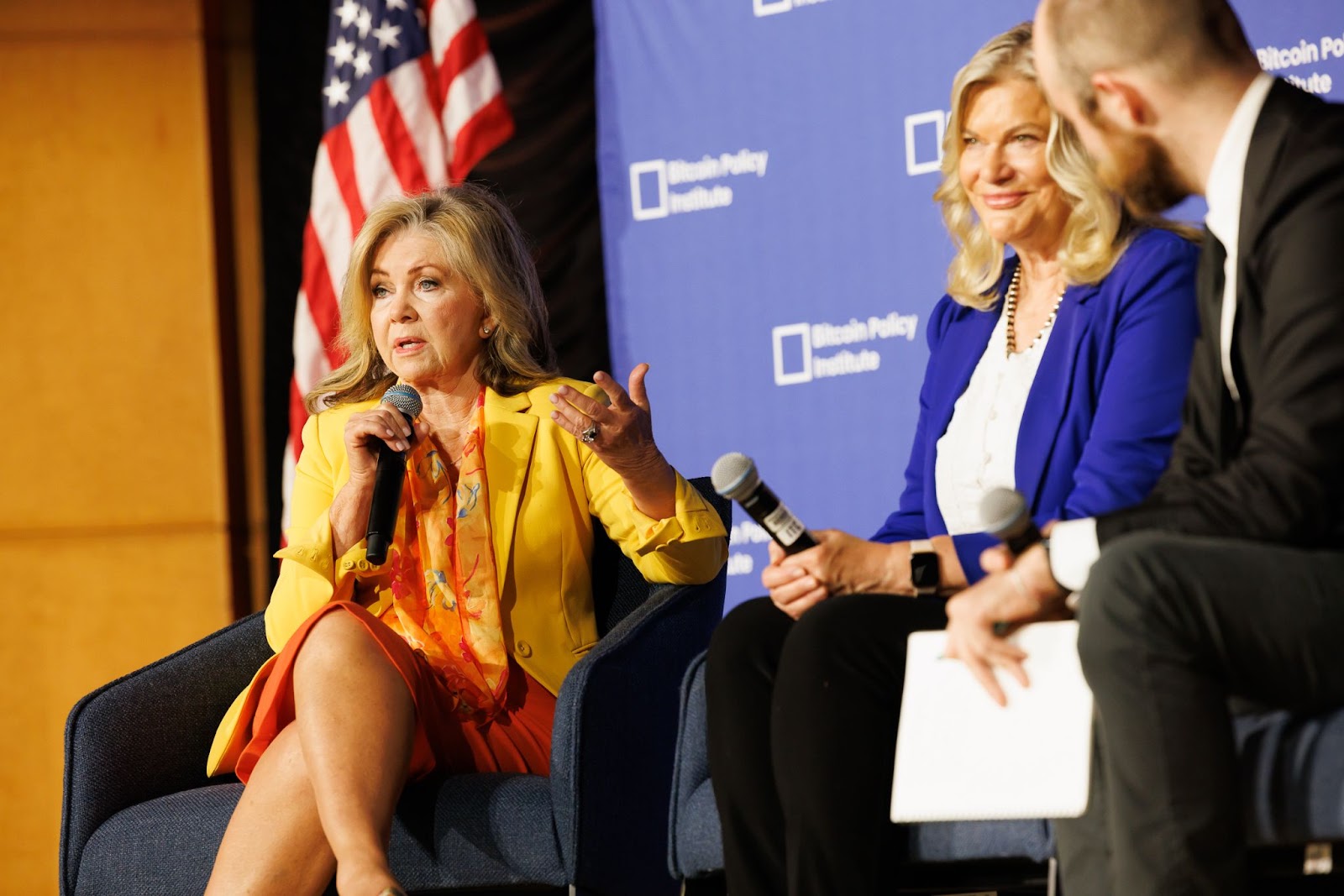
Alex Leishman gave a data-rich talk on the benefits of American Bitcoin. It’s why the US is leading our institutions, capital markets and the rule of law. Alex Gladstein brought the lens of human rights back to life, reminding the room that Bitcoin is still the most powerful free technology of the 21st century.
Patrick Whitt, deputy director of the President’s Council on Digital Assets, reiterated the administration’s strategic interest in Bitcoin and highlighted the ongoing progress.
“There are future reports on inter-ministerial activities. We have already taken some steps in the SPR. The question now is how to follow it in the accumulation plan. There is a lack of opportunities and it is something to do.
Two Democrats, Rep. Richie Torres (D-NY) and Josh Gottheimer (D-NJ), joined Bitcoin Core’s tenth known developer, Matt Coraro, and Grant McCarty, co-chairman of BPI, to discuss the need to create a Vipartissan for the Blockchain Regulations Certification Act.
At one point on the panel, Senator Torres said,
“The value of Bitcoin is safer than gold because you can always find gold, but the supply of Bitcoin worldwide remains permanently fixed.”
Rep. Gotheimer, who recently signed as a co-sponsor of the bill, added to Torres on the stage, highlighting his decision to co-host the bill, underscoring the bill, protecting innovators and maintaining the integrity of the open source development ecosystem.
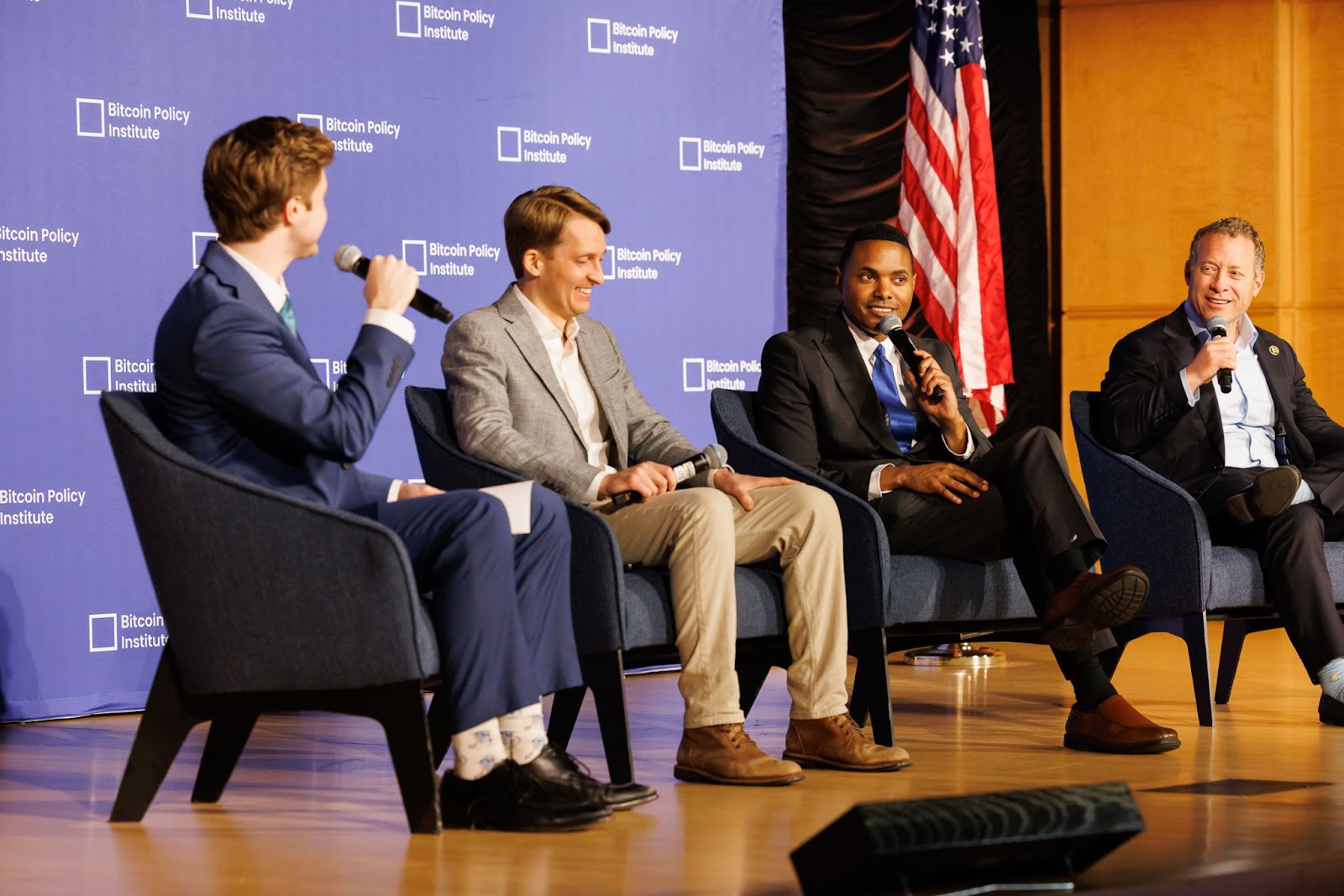
In one of the most impactful sessions, BPI’s Zack Shapiro sat down with SEC Commissioner Hester Perth to discuss the future of ETF structures, qualified custody, and Bitcoin-native financial infrastructure. It was detailed, honest, substantive – exactly what this moment wants.
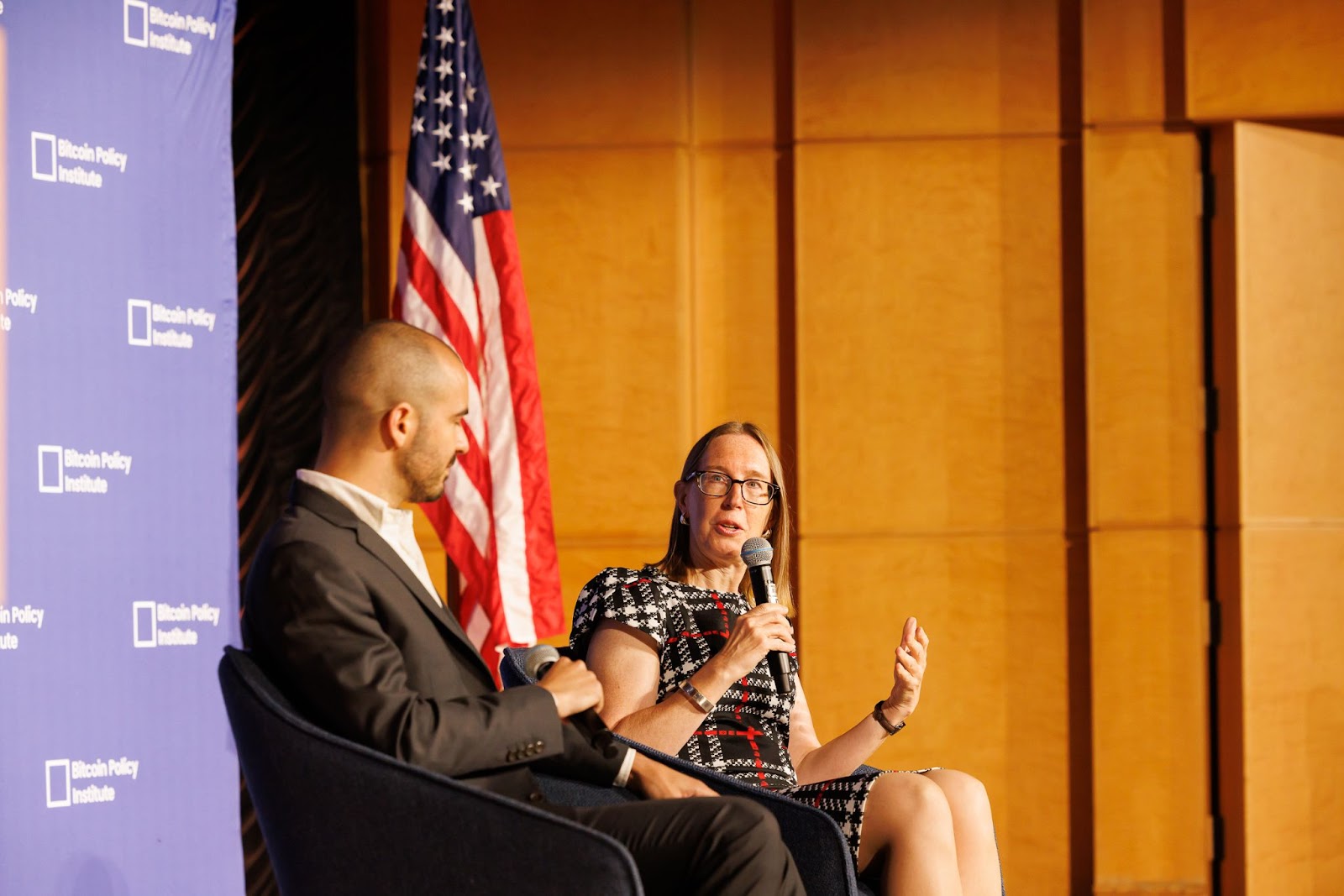
Opening Hours and Q&A Room
New this year, we introduced structured opening hours. In a one-on-one session, participants can sit with our research peers. These conversations delved into mining, privacy, regulation, and financial strategies in an unfiltered environment.
The Q&A room has been added with another layer of depth. Cygnal CEO Brent Buchanan walked the recent poll of 800 medium-term voters. The findings were clear. Bitcoiner is becoming a political constituency. Ignore them at your own risk.
Anna Chekhovich also led a basic Bitcoin 101 session for policymakers, breaking down the basics of Bitcoin in plain language, rooted in her global human rights work.
Bitcoin on the hill
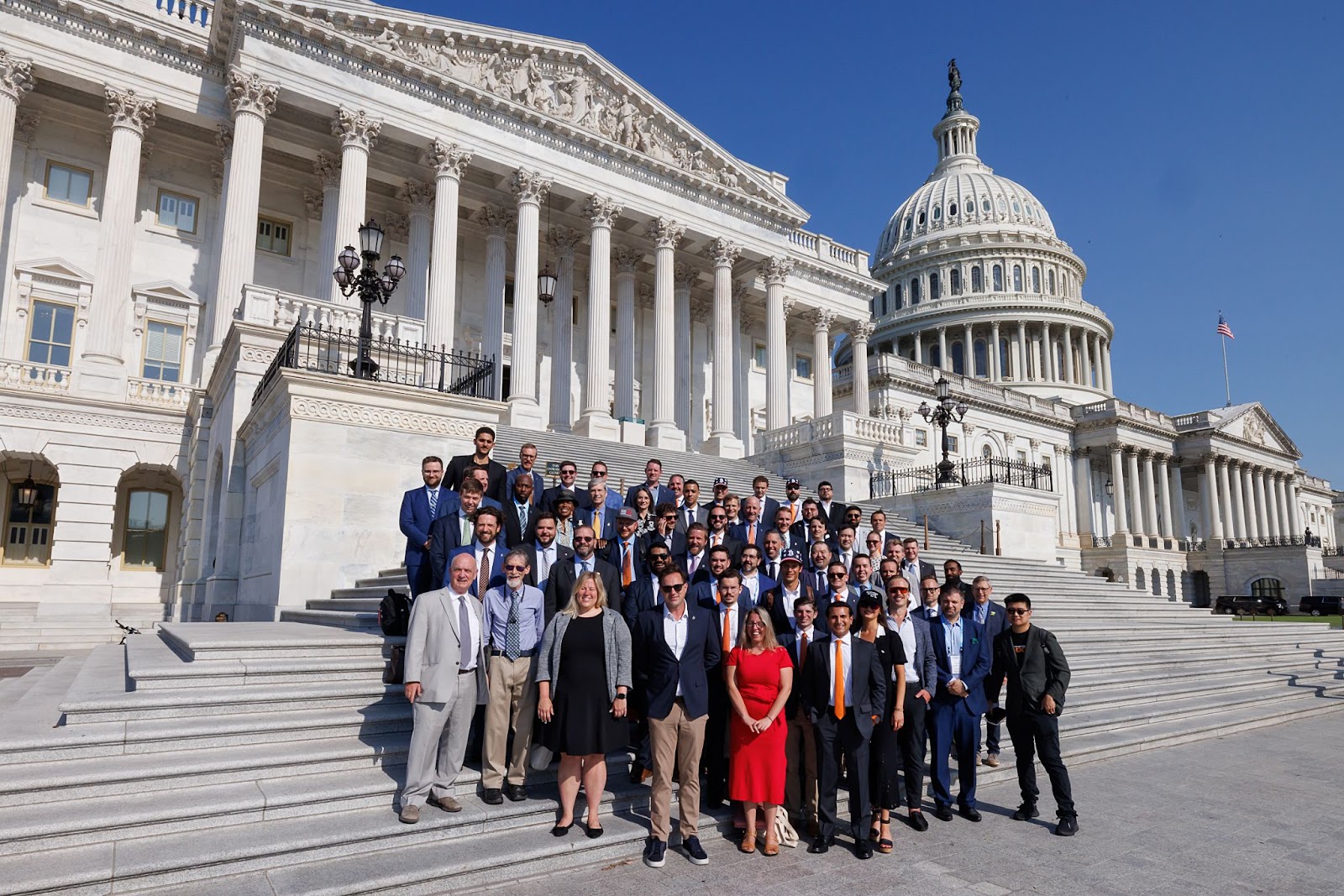
The day on BPI Hill marked the biggest coordinated efforts to date of Bitcoin supporters engaged directly with lawmakers. Over 120 participants participated in 118 confirmation meetings with the council office.
48 Senate Office 70 House Office 10 meetings in member-level offices from 68 Democrats and representatives of 50 Republicans from 28 states, DC and US territory.
This was not performance. It was strategic. For many in Congress, these were their first real conversations with serious, mission-driven Bitcoin supporters.
Reflection
What stood out this year was the tone. Bitcoiner came in a suit. Not as a costume, but as a signal. We have become serious about engagement. The excitement in the room was not a hype. It was based on a common sense that focus, preparation and this moment was important.
DC responded. Policymakers and staff were not just open, they were engaged. They asked good questions. They heard. The distance between Bitcoin and Washington is shrinking quickly.
Personally, the most notable perception was that General Z was enabled. It wasn’t just the number of young people in the room. That was their presence. They were engaged, keen, curious and really excited to be part of the conversation. I have been to more meetings than I can count, but this was the first time I felt like my peers weren’t looking on bystanders. They were among them – asking questions, driving dialogue, shaping the future. And most of all, we’re just starting out.
This is just the beginning
The Bitcoin Policy Institute is set up on its own to hold a summit that does not answer anyone other than its mission. Bitcoin does not seek special treatment. It is not a lobbying activity for handouts. It argues about merits as to why it is important for American sovereignty, innovation and economic freedom.
That case has become much more difficult to ignore.
See you next year.
This is a guest post by Zack Cohen. The opinions expressed are entirely unique and do not necessarily reflect the opinions of BTC Inc or Bitcoin Magazine.
Source: https://bitcoinmagazine.com/politics/bitcoin-showed-up-in-dc-and-washington-took-notice

